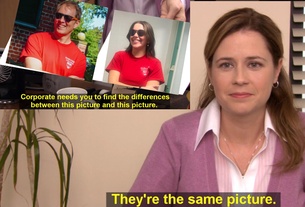For those who think that development amounts to a few mailings and a lot of phone calls, Rogers, with a laugh, insists, “it’s not quite that simple.”
Indeed, after the research is done, more than 200 frontline gift officers—some working from the Development office itself, the others working at individual schools—bring the results into the field. Hundreds more work in support as assistants, analysts, and event and financial planners across the University.
According to various online job postings by the University, new gift officers are expected to commit a large part of their year—up to two months—to life on the road, where they meet potential and existing donors on their home turf. Annually, these officers are expected to conduct hundreds of in-person meetings with alumni and are also required to continually generate new leads of potential donors in the $100,000 plus range.
‘A WHO’S WHO OF HARVARD’
Those who establish a pattern of significant giving are likely to hear more from the Development Office and, in some cases, Harvard’s leaders, as they gain eligibility for an important perk of sustained support: the alumni committee.
“Once you give serious money, they will never let go of you,” Byron R. Wien ’54 says.
{shortcode-3887704056aac76b2c692d6196c088585dc7115e}
Major donors like Wien fill out formal and informal committees spread across the University’s schools and run by top administrators. The committees have various functions, but nearly all have a similar, overarching goal: keep alumni on campus and in touch with Harvard.
Keeping alumni engaged, Rogers says, “means ensuring that they meet people who could be of interest [and] revisit the campus.” Depending on the donor, these visits often include facetime with top University officials. “It’s quite, quite common that they have the opportunity to spend time with various leadership,” she says, adding later that for the donor who wants to stay abreast of what is going on at Harvard, committee work is often very attractive.
“There are people who are very interested in committees, they are interested in helping the University solve certain kinds of problems or look at certain issues,” she says.
Among the most exclusive of these groups is the Committee on University Resources, founded by the Board of Overseers in 1940 and envisioned by University officials and COUR members as a capstone recognizing generous support to Harvard. While wealthy alumni often serve on various visiting committees or deans’ councils, many of the wealthiest are united by COUR membership.
Some members say they did not even know COUR existed before they were invited to join, but most insist that admission to the committee does not necessarily come with the expectation of future support. Once invited, members say that COUR becomes a place where a group of dedicated supporters can connect with one another and with top Harvard officials in an intimate setting.
“I was just amazed at the individuals who were invited to participate in it and what they had accomplished in their lives,” says Paul J. Zofnass ’69. “In my view, it was the who’s who of Harvard.”
Zofnass adds that while he had given generously to Harvard before being invited to join COUR, he “wasn’t even close” to the $1 million figure that some have claimed is a membership requirement for COUR.
Most COUR members interviewed for this story say that the highlights of the group’s annual meetings are the enhanced access to University leadership and the discussions with other members.


